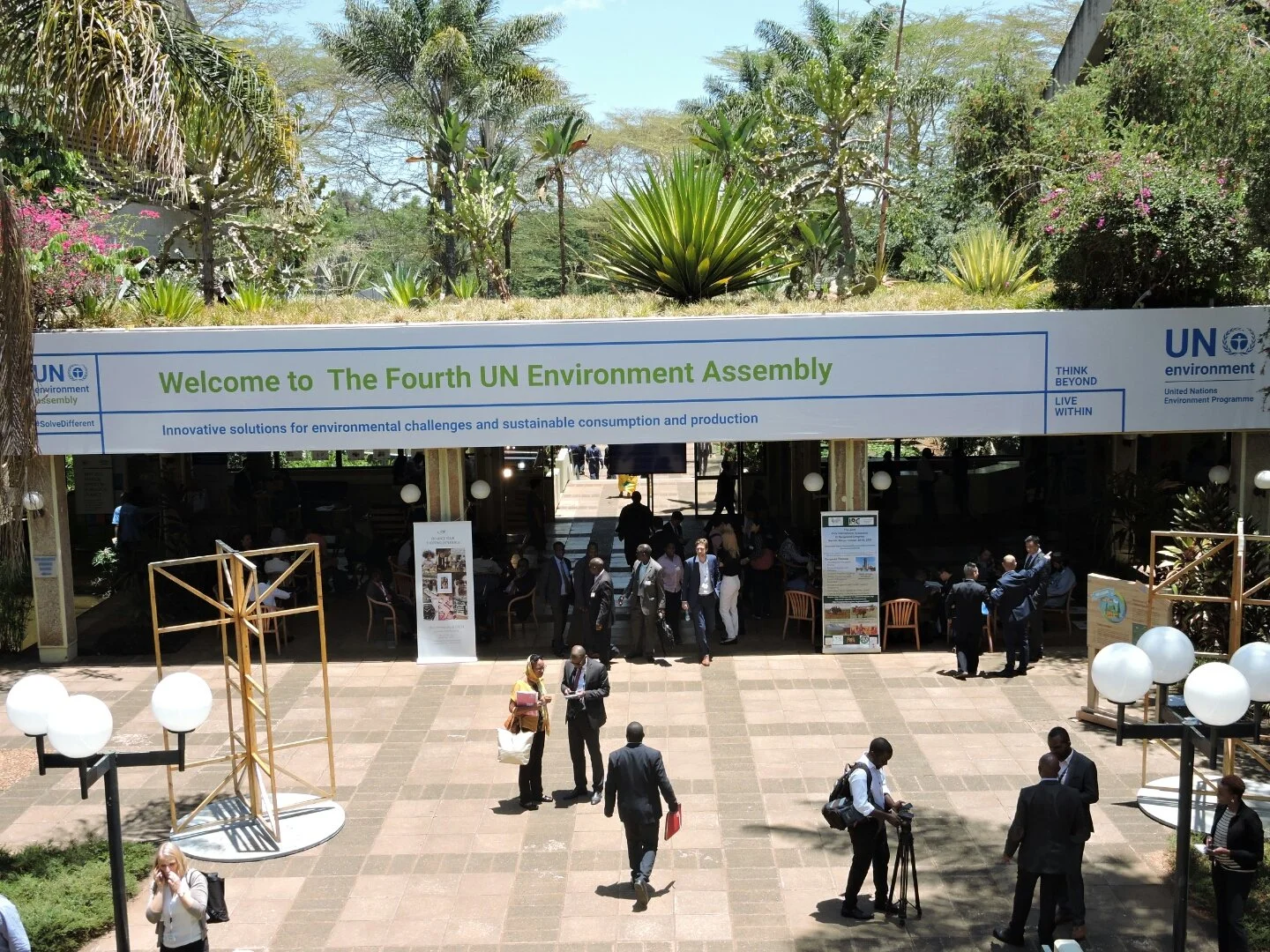UNEA daily monitor is powered by The Youth Cafe’s delegates attending the fourth UN Environment Assembly. The newsletter tracks the most important negotiations and events and delivers the daily news through the lense of young people.
On Thursday, March 7th, Global Major Groups and Stakeholders’ forum opened with a reflection on the situation for Major Groups and Stakeholders since the 3rd UN Environment Assembly to present with a look toward the future. This reflection continued into the afternoon before the breakout sessions with a focused discussion on the engagement at UNEA-4 by the MGS. Inviting a dialogue with the UN Environment Executive Director was another point of discussion by the Major Groups and Stakeholders.
The Forum highlighted the following issues, including the:
• critical role of Major Groups and Stakeholders for innovation and change,
• Major Groups and Stakeholders as key actors implementing UNEA-4 resolutions on the ground;
• importance of ensuring broad and inclusive participation by stakeholders and the responsibility of the participants in the room to represent those who were not able to come; need for increased political attention to biodiversity;
• overall challenges of the implementation of resolutions;
• limited financial resources for supporting civil society participation and the smaller number of civil society participants in UNEA-3 than UNEA-4;
• trend of rolling back the role of women as human rights and environmental defenders in UNEA resolutions;
• environmental challenges of poverty;
• importance and role of local governments in cities; and
eco-innovation as a strategic approach to influence the entire value chain. The day included an address by Mr. Siim Kiisler, the Estonian Environment Minister and UNEA President.
Mr. Kiisler who in his address thanked the Major Groups committee for facilitating the meeting.
According to Mr. Kiisler, the voice of civil society matters, particularly as its role is increasingly being recognized and valued. The work of the Major Groups and Stakeholders will make a difference. It is easy for Governments to make general statements, but concrete commitments and deadlines are complicated.
For Mr. Kiisler, meaningful gains in environmental change are defined by collaboration that in turn requires active participation, and consistent funding is essential.
The afternoon session considered solidarity, the economy and community initiatives.This included a discussion on union attitudes to transition to a more sustainable future; community initiatives, and the way in which associations develop out of community groups to bring pressure and develop initiatives; efforts in India to address needs and consequences of menstrual products; inclusive multilateralism as a means of bringing change, and the need for better means of to facilitate knowledge exchange based on experience and learning from implementation; the need to support smallholder farmers in their efforts to grow food in a sustainable way; and finally marine and coastal protection via the focused involvement of local groups.


